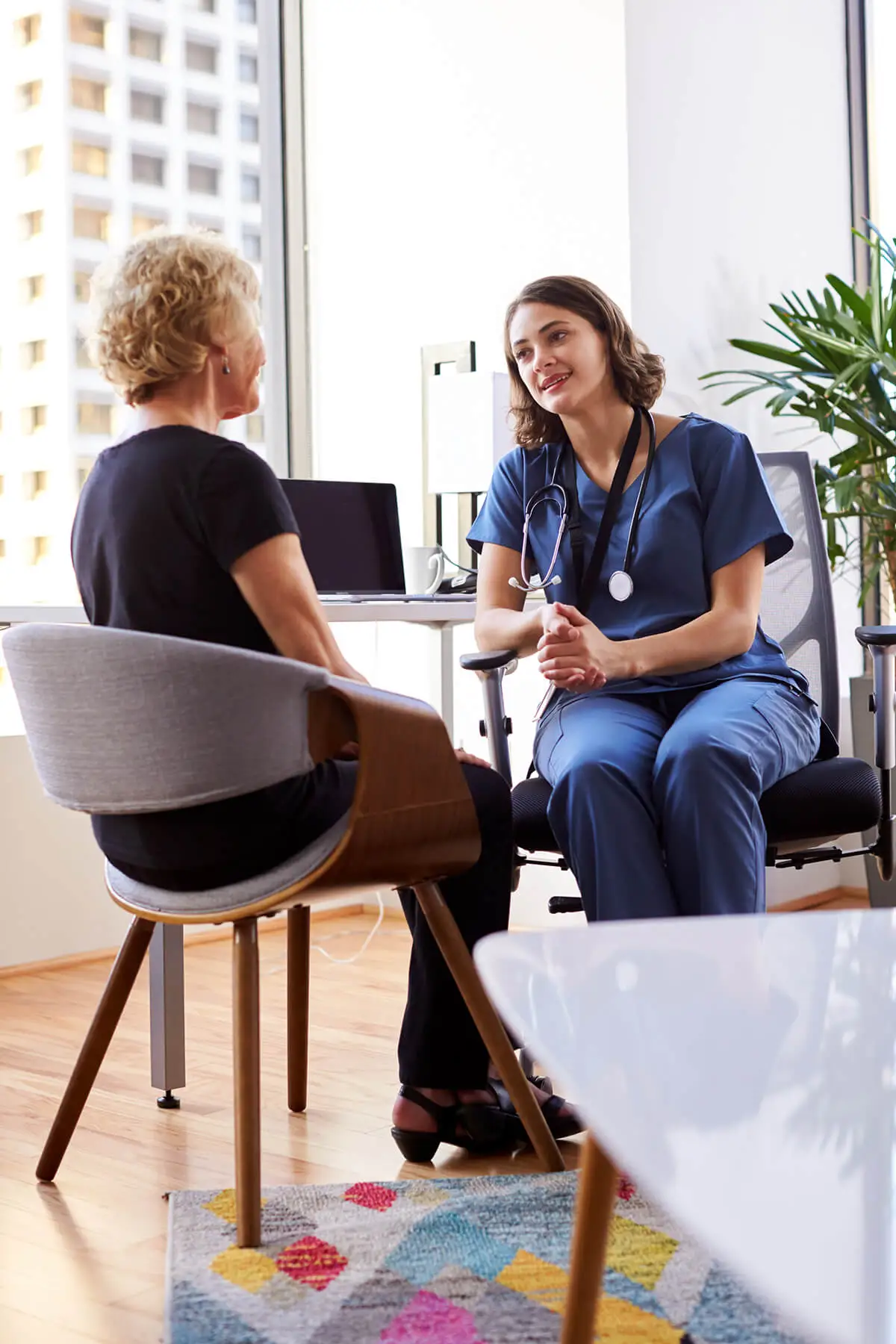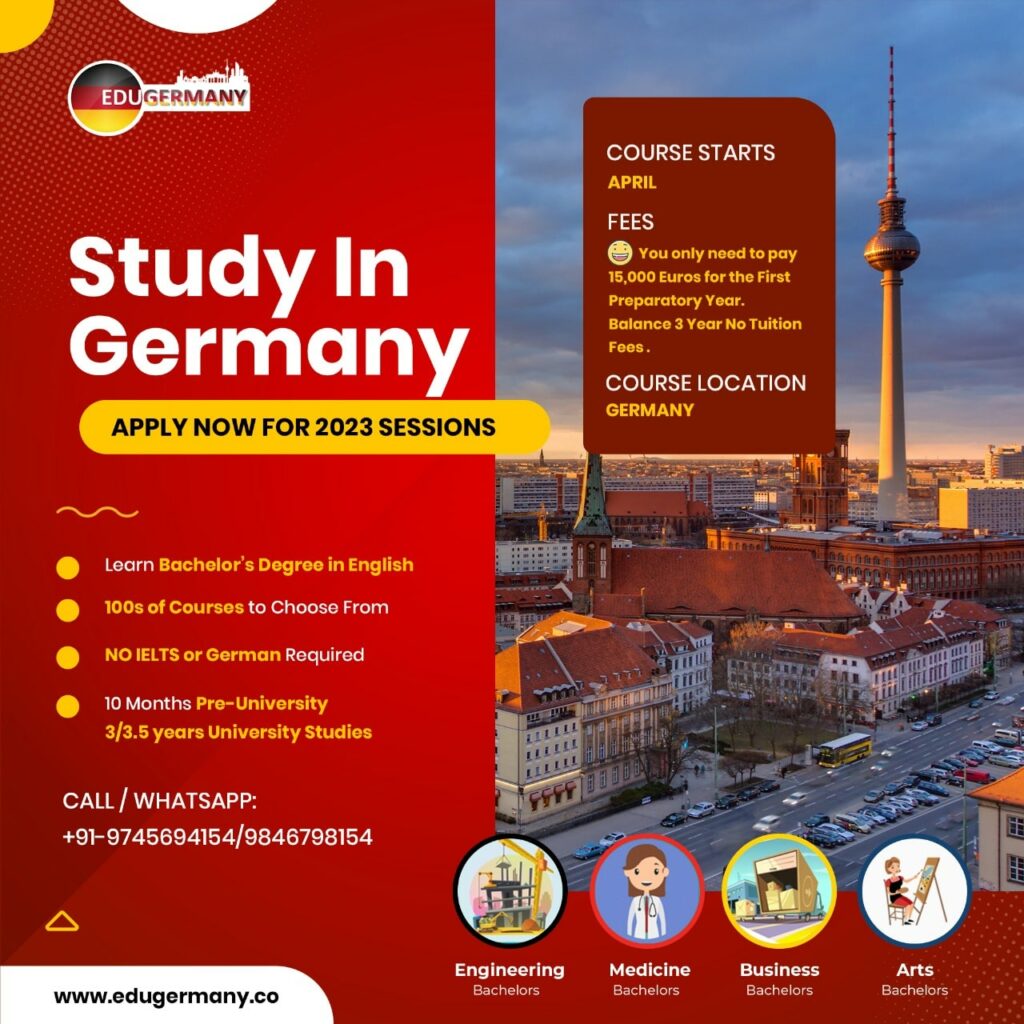- medicine postgraduate in germany
Study PG In Germany After Mbbs In India
As a medical pg in Germany consultant, Edugermany assists international doctors and prospective medical PG students in completing their Medical German preparatory programs and examinations in Germany in order to qualify them to specialise in their field of medicine.

Want to study your Medical PG or MD or MS in Germany after your MBBS in India / Ukraine / Russia / China / Philippines?
Do you know that you can receive a medical licence to practise in Germany even if you completed your medical education (MBBS or BDS) outside of Germany? If you desire, you can continue to practise as a doctor and settle in Germany by pursuing your advanced speciality or medical PG in Germany for a small fee.
PG in Germany After MBBS
To practice medical profession or attend specialty training for international / Indian doctors in Germany, all those physicians must have a valid full or temporary licence to practise and also be a member of one of the State Chambers of Physicians across the 16 states in Germany. The full licence to practise is valid across Germany for an unlimited duration. The temporary licence to practise is limited to a certain period and would be valid only within one of the federal states of Germany in which it was granted.
Eligibility For Medical Training in Germany
To pursue a medical career or specialist medical training in the fields of medicine or dentistry in Germany, you must first complete these basic requirements.
To pursue medical profession or specialist medical training in the fields of medicine or dentistry in Germany, you should first qualify and have German language skills corresponding to level B2 (upper intermediate) or higher. This course consists of two parts:
- General German language course – ~9-10 months
- German for Medical purposes – ~2-3 months
The medical candidates once they complete these language levels, they appear for the official language exam and qualify to get a temporary medical license which will allow them to prepare for the clinical proficiency test.
The applicant must prove the required knowledge and skills in the proficiency test in order to obtain a permanent medical license.
- Topic Covered in Tests are Surgery, emergency medicine, imaging procedures, clinical pharmacology etc. and the legal aspects of medical practice in Germany.
The test is an oral practical assessment with patient case studies and typically 60-90 minutes long.
If major differences are identified between the applicant’s medical training and the medical training in Germany, then the competent medical authority may then decide if there is a need to evaluate another subject or discipline via an aptitude test. This aptitude test is also an oral practical examination with patient case studies which is completed in a single day.
Once the final assessment is successfully completed, the candidates attain full medical licensure for their medical practice in Germany (working) or medical specialty training in Germany as a Doctor.
How to study Medical Specialization in Germany?
Speciality Medical Training (We generally call it as MD in radiology, Oncology, Gynaecology, Anaesthesia, paediatrics etc, MS – Surgery and other procedures) in German
If you are interested in Medical Specialization, unlike in most countries there is no specific MD / MS / MDS programs in Germany. Study Medical specialization in Germany is more of a continuing education along with your work which can let you earn up to 4000 euros as salary while you are under speciality training.
Physicians or Doctors who have a valid full licence to practise in Germany are entitled to apply for a position as a Junior Physician at an institution licensed for medical training in the relevant area of specialisation. The training is supervised by a clinical tutor authorised by the State Chamber of Physicians and will be conducted at a university hospital, clinic or other approved medical institution or an outpatient unit practising physician who is authorised to supervise. The medical specialization training in Germany usually lasts for 5-6 years, depending on the training regulations for the specialty.
Junior physicians may apply to the State Chamber of Physicians to be assessed, once they fulfil the points stipulated in the specialty training regulations and guidelines on the content of specialty training. The assessment is done as an oral examination with a committee of three physicians, where two of them will be qualified specialists in the area to be examined and will determine whether the training has been completed successfully. Upon successful completion of the examination, the physician will be awarded a specialist diploma and is qualified to practice as a medical specialist in Germany as a member of the State Chamber of Physicians.




How to work as a medical doctor and obtain work permit in Germany?
The EU Blue Card was introduced to help attract highly qualified professionals from non-EU countries to come and work in Germany. It’s a prestigious work permit with various benefits compared to the normal work permit, including making the path to a permanent resident permit faster and easier. However, there are various conditions attached, for example you’ll need a concrete job offer with a stipulated salary per year, and for your degree to be recognised in Germany.
If the Blue Card isn’t an option for you, you may still be able to get a ‘residence permit for the purpose of gainful employment’ (formerly ‘work permit’). Depending on the reason you were denied a Blue Card, this will require more effort. But it is a valid and widely used residence permit for Germany, and although the final integration process will be slower, it gives you the same rights as the Blue Card.
As a medical Graduate, once you started practicing as a medical resident (after obtaining permanent license) or doing your Medical Post graduation while working, you will be eligible to get permanent residency in 21 months. For this German-language B2 level is required. With a permanent license, you can work permanently in Germany.
Learn More
Frequently asked questions
Haven’t found what you were looking for?
Try our Resource Center or Contact Us.
